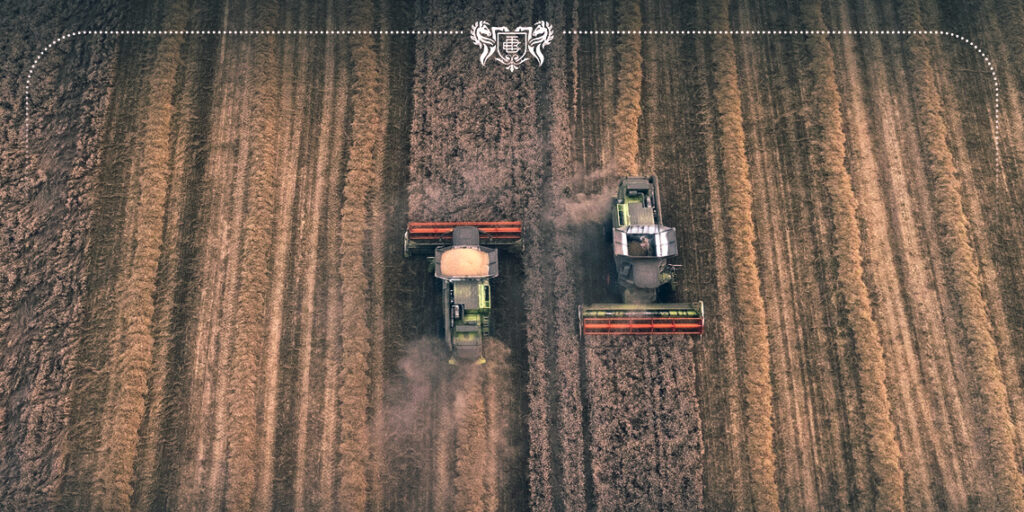In an unusual move, Tom Bradshaw, president of the National Farmers’ Union (NFU), sharply criticised the government following this week’s budget announcement, stating: “Before the election, Keir Starmer promised to establish a new relationship with farming and the countryside. Well, he’s certainly done that.”
This rare public condemnation by the NFU, which usually prefers behind-the-scenes diplomacy, underscores the level of frustration in the farming community—reminiscent of the discontent over the Brexit trade agreements.
Why Are Farmers Upset?
The farming sector’s ire is directed primarily at changes to agricultural property relief (APR). Environment Secretary Steve Reed had previously assured that Labour would not interfere with this tax provision, which is essential for protecting family-run farms.
However, Chancellor Rachel Reeves announced that from April 2026, only the first £1 million of agricultural property value will be exempt from inheritance tax (IHT).
Any value above this will be subject to a 20% tax, as the combined APR and business property relief (BPR) will cover just 50% of the usual 40% IHT rate. This shift effectively taxes the full value of farms and estates over £1 million.
Bradshaw voiced his dismay, saying, “When you look farmers in the eye and make them a promise, keep it.”
Will Only Wealthy Farms Be Affected?
The UK has approximately 209,000 farms, and while a £1 million exemption might seem significant, the Country Land and Business Association (CLA) estimates that about 70,000 farms will be impacted.
Many farmers are asset-rich but cash-poor, with agriculture known for its challenging work, low financial returns, and increasing vulnerability to extreme weather events linked to climate change.
Farming is often pursued as a family tradition, and many worry that if farms become unaffordable to pass down to the next generation, this tradition will be lost.
Bradshaw highlighted the misconception, stating, “It’s clear the government does not understand that family farms are not only small farms. Just because a farm is valuable doesn’t mean those who work it are wealthy. Every penny the chancellor saves from this change will come directly from the next generation being forced to break up their family farm.”
There is already pressure on Reeves to raise the exemption limit. Ben Sharples, an agricultural law expert at Michelmores, pointed out: “A £1 million exemption won’t stretch far when considering land prices at £10,000 per acre, not to mention the value of farmhouses and buildings.”
Are Farmers Justified in Their Anger?
Tax specialist Dan Neidle argued that the new rules would not affect 73% of farmers and reminded that APR was only introduced in 1992, before which farming managed without it.
He suggested that farmers over the threshold consider life insurance to cover IHT costs. Meanwhile, Reeves defended her policy on LBC, saying, “Currently, some of the wealthiest landowners, not necessarily farmers, pay no inheritance tax, whereas middle-class families do. That is unfair, and that’s why we’ve closed this loophole.”
Why This Matters to Non-Farmers
The preservation of family farms is also a public interest issue. The UK has seen a decline in domestic food production across multiple sectors, increasing reliance on imports.
Labour highlighted this issue in the lead-up to the election, noting that over 6,300 UK agricultural businesses have ceased operations since 2017.
Further Sources of Frustration
Adding to farmers’ discontent, the Department for Environment, Food & Rural Affairs (Defra) confirmed that budgets for eco-friendly farming initiatives are not protected. The government aims to cut £600 million from the farming and flood prevention budget after 2025/26, with the current £2.4 billion annual fund only secured for next year.
Budget “reviews” typically signal potential cuts, which would reduce funding for environmental measures, leading farmers to maximise food production at the expense of biodiversity.
Moreover, Labour plans to accelerate cuts to the basic payment scheme—a holdover from the EU’s Common Agricultural Policy. This scheme, offering flat-rate payments per acre, is being gradually replaced by payments encouraging sustainable practices.
Defra will reduce the first £30,000 of payment by 76% in 2025, while eliminating payments above £30,000. For example, a £40,000 payment would be slashed to £7,200, compared to this year’s 50% reduction. This accelerated cutback has come as a shock to farmers who operate on tight, long-term budgets.
For many in the agricultural sector, these changes compound a challenging landscape, where future planning becomes increasingly difficult amid tighter financial margins.


